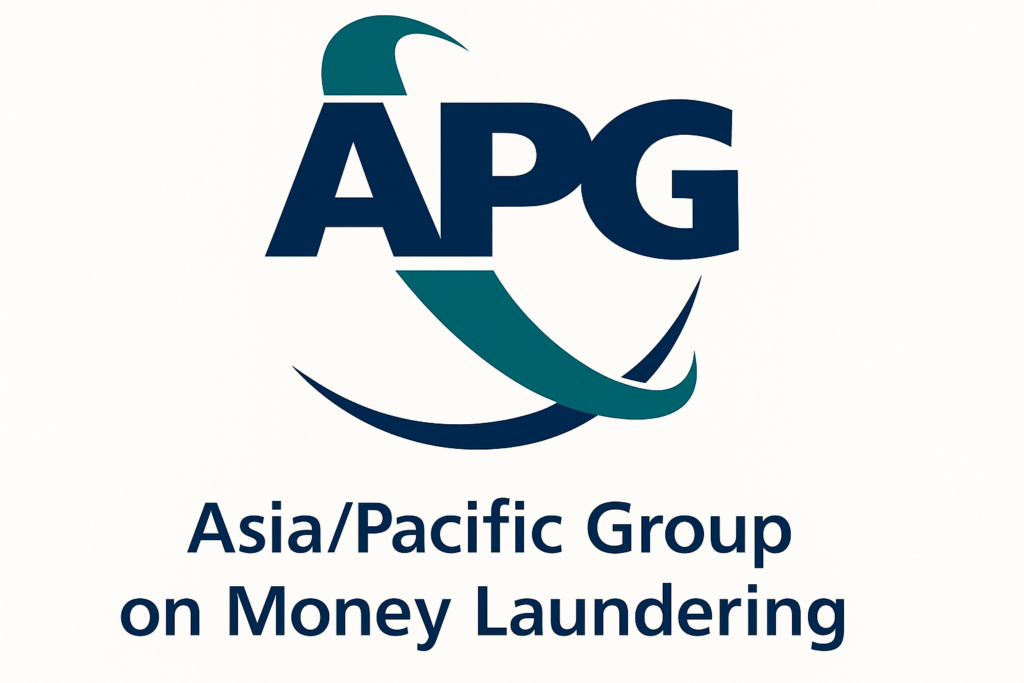
Nowadays, there are various entities and organizations involved in the prevention of money laundering and the financing of terrorism. Among them are the FATF-style regional bodies (FSRBs). To date, nine FSRBs have been established, such as the CFATF, all of which are integrated into the FATF’s global network. Another such entity is the APG — Asia/Pacific Group on Money Laundering —, which coordinates and strengthens anti-money laundering and counter-terrorism financing strategies in the Asia-Pacific region.
The APG was established in 1993. At that time, it was called the “FATF — Asia Secretariat,” and was founded and funded by the Australian Government. With support from the Commonwealth Secretariat and the FATF, a collaborative effort began among Asia-Pacific countries to promote AML policies and establish a permanent prevention body associated with the FATF.
Meetings were held in 1993, 1994, and 1995. However, it was not until the 1997 conference in Bangkok that the APG was created in its current form: an autonomous FATF-style regional body. At that time, it had 13 members; today, the APG consists of 42 countries or jurisdictions, including:
- Afghanistan
- Australia
- Bangladesh
- Bhutan
- Brunei Darussalam
- Cambodia
- Canada
- China
- Chinese Taipei
- Cook Islands
- Fiji
- Hong Kong
- India
- Indonesia
- Japan
- South Korea
- Lao PDR
- Macao
- Malaysia
- Maldives
- Marshall Islands
- Mongolia
- Myanmar
- Nauru
- Nepal
- New Zealand
- Niue
- Pakistan
- Palau
- Papua New Guinea
- Philippines
- Samoa
- Singapore
- Solomon Islands
- Sri Lanka
- Thailand
- Timor-Leste
- Tonga
- Tuvalu
- United States
- Vanuatu
- Vietnam
In addition, countries such as Germany, France, and the United Kingdom participate as observer members, supporting and promoting the work of this international body.
The APG’s main objective is to ensure that its members implement and promote regulatory standards to combat money laundering and terrorist financing. To achieve this goal, the APG performs several functions.
One of its key activities is promoting mutual evaluations. These are peer review mechanisms aimed at assessing compliance with the FATF’s 40 Recommendations. In other words, APG members evaluate each other with the help of expert teams to rate the implementation of these Recommendations.
For example, in the mutual evaluation of Papua New Guinea, the evaluation team was composed of experts from the Philippines, Tonga, New Zealand, and Japan.
Another key function of the APG is providing technical assistance and training in anti-money laundering and counter-terrorism financing matters. These efforts include help in drafting regulations or guidance, training for prosecutors and judges, and promoting international cooperation.
Finally, its organizational structure includes the Membership Assembly, Co-Chairs, Governance Committee, and the Secretariat. According to its Statutes, the first of these bodies is the “supreme decision-making body of the APG.” All other bodies are required to report and justify their actions to the Membership Assembly.
The Co-Chairs consist of a permanent chair, held by Australia, and a rotating chair that changes every two years. Their responsibilities include defining the APG’s strategic objectives and leading the annual meetings and Governance Committee sessions.
Lastly, the Governance Committee and the Secretariat are the two pillars that ensure the APG’s day-to-day operations. The former, composed of subregional representatives and co-chaired by the Co-Chairs, provides guidance on the APG’s structure and functioning, and reviews members’ proposals by consensus. Meanwhile, the Secretariat acts as the APG’s focal point. Its key functions include:
- Coordinating and managing mutual evaluations of members.
- Implementing the technical assistance and training strategy with donors and providers.
- Providing technical support to the Governance Committee and Co-Chairs.
I am an obliged entity and looking for an AML tool.
Great! You’ve come to the right place at the right time. Request a demo with the Pibisi team and tell us what you need with no obligation.
I’m not sure if I’m an Obliged Entity…
No problem, it’s a very common question. Take our simple questionnaire and find out NOW.
If you want to stay updated with new articles, subscribe to our newsletter if you haven’t done so already.
And if you’d like to suggest a topic you’d like us to write an article about, or you simply want to get in touch with us, you can do so via our contact form.

